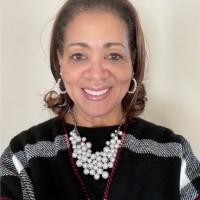
Celebrating Women's History Month
International Women’s Day was conceived by labor activist Theresa Malkiel and organized in New York City; it was called “National Women’s Day” and held on February 28, 1909.
The following year, an International Women’s Conference met in Denmark. At that meeting, inspired by the Women’s Day celebration in America, it was suggested that an international celebration be held; no initial date was set. On March 19, 1911, they held their first International Women’s Day. It included more than one million people in hundreds of demonstrations in Austria, Denmark, Germany, and Switzerland. Similar events were held in the US and abroad in the coming years, however, the first International Women’s Day celebrated in both the United. States and Europe was held on March 8, 1914.
As we recognize the achievements of women in history; we share just a few stories of female pioneers in their respective fields who come from very diverse backgrounds. These remarkable women have broken barriers, challenged norms, and paved the way for future generations. Their contributions serve as an inspiration for all.
Gladys Burrill – (1918-2019)
Burrill earned the Guinness Book of World Records record as the oldest female to complete a marathon. At age 92, she finished the race, which took place in Honolulu, in nine hours, 53 minutes and 16 seconds. It was her fifth Honolulu finish in seven years. Along with competing in her first marathon at the age of 86, she was a world traveler, licensed pilot, avid hiker, and prolific gardener.
Amy Tan (1952 – Present)
Tan is the author of the book The Joy Luck Club, which “explores the relationship between Chinese women and their Chinese-American daughters. The novel has been translated into 25 different languages since it was first published. The novel was published in 1989 and adapted into film in 1993.
Gertrude Elion (1918-1999)
Gertrude Elion was a brilliant woman of Jewish descent who won the Nobel Prize in Physiology or Medicine alongside George H. Hitchings and Sir James Black. The prize was awarded to them for their use of rational drug design over trial-and-error methods.
Elion played a significant role in the production of the drug azidothymidine (AZT), which was one of the first drugs used to treat HIV and AIDS. Other important contributions she made were to the creation of the leukemia treatment drug, Purinethol; the immunosuppressive agent used for organ transplants, Imuran; the malaria drug, Daraprim; and the viral herpes treatment, Zovirax. She was also a key mind working on the cancer treatment Nelarabine until her death on February 21, 1999.
Overcoming the great gender biases of the time, Elion’s work saved and enriched countless lives, and her passion for science encouraged many other women to follow in her footsteps.
Henrietta Lacks (1920-1951)
Lab-grown human cells are invaluable to medical researchers. They allow scientists to better understand complex cells and theorize about diseases. The first “immortal” cell of its kind was created in 1951 at Johns Hopkins Hospital, its donor remaining unknown for years. But we now know that those cells belonged to Henrietta Lacks.
From southern Virginia, Henrietta was a black tobacco farmer who was diagnosed with cervical cancer at 30. Without her knowing, her tumor was sampled and sent to scientists at Johns Hopkins. Much to the scientists’ surprise, her cells never died. Henrietta’s immortal cells were integral in developing the polio vaccine, and were used for cloning, gene mapping, and in vitro fertilization.
For decades, the donor of these cells, which were code-named HeLa, remained anonymous. In the 1970s, Henrietta’s name was revealed and the origins of HeLa, a code for the first two letters in Henrietta and Lacks, became clear. While Henrietta Lacks may no longer be with us, her contribution to science is long lasting.
Katherine Johnson (1919-2020)
Underrated American icon Katherine Johnson — also known as Katherine Goble Johnson or Katherine G. Johnson—spent 33 years working at NASA, during which she not only paved the way for women of color working in STEM (Science, Tech, Engineering, and Math) but also blazed humanity a trail to the stars. She shaped the future of humanity, both on Earth and in space.
In the '40s, '50s, and '60s, NASA hired women to do the complex mathematical work that computers do today. Women were thought to be detail-oriented and accurate, thus well-suited to the job. In fact, in contrast to today's male-dominated tech world, math and computing were seen at the time as women's work.
In Johnson's role at NASA, people trusted her with their lives—John Glenn, the first American to orbit the Earth, said of Johnson: “Call her, and if she says the computer’s right, I’ll take it.” He wanted her to double-check the computer’s calculations on the reentry of his spacecraft Friendship 7 because he preferred to rely on her instead of a machine.
Chien-Shiung Wu (1912 – 1997)
Chien-Shiung Wu was a Chinese American physicist who contributed to the development of the atomic bomb and overcame many racial and gender barriers. Born in Liu Ho, China in 1912, Chien-Shiung Wu was recruited to Columbia University as part of the Manhattan Project, a program of research and development undertaken during World War II to produce the first nuclear weapons. She worked as a senior scientist on the atom bomb in 1943, where she conducted research on radiation detection and uranium enrichment. At 30 years old she assisted two male colleagues in disproving a 30-year old law of nature, “the hypothetical law of conservation of parity.” Her two male colleagues received the Nobel Prize in Physics in 1957.
At PSL we have our own history of amazing women, and we know that within the communities of Presbyterian Senior Living, they continue to contribute their talents, skills and time and to share their knowledge and experience, enhancing the communities in which they live. They embrace the opportunity to live their lives in limitless ways; to teach when they can and share what they know. To those women we say thank you for your contributions!
About LaJeune Adams
PSL’s Cultures and Values give assurance of our organization’s commitment to diversity, equity and inclusion, through ensuring that all stakeholders feel that they belong. By lifting up voices and people, we will create an organization where all stakeholders feel that they are of value. As part of this commitment PSL formed Culture Champions within each community and location within the organization. Culture Champions are PSL representatives empowered with leading the movement of living and teaching our values while embracing DEI initiatives and encouraging others to do the same. As the Corporate Director of Education and Development and DEI Officer, LaJeune Adams is one of the PSL leaders that supports and works directly with the Culture Champions. LaJeune has worked with Presbyterian Senior Living for over 16 years in the roles of Human Resources Manager and Area Human Resources Director prior to her current role.



